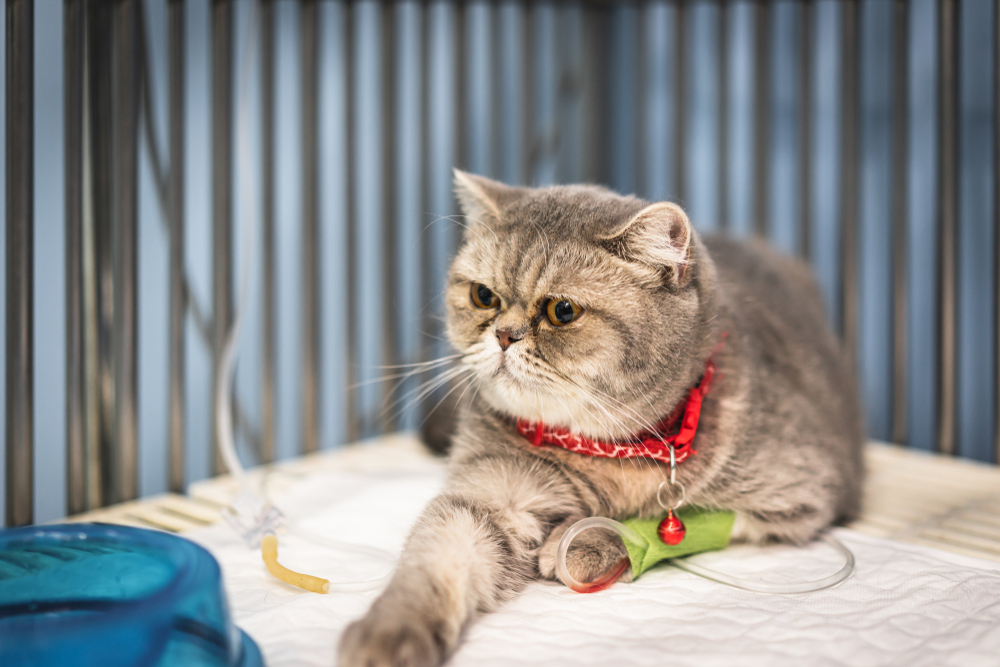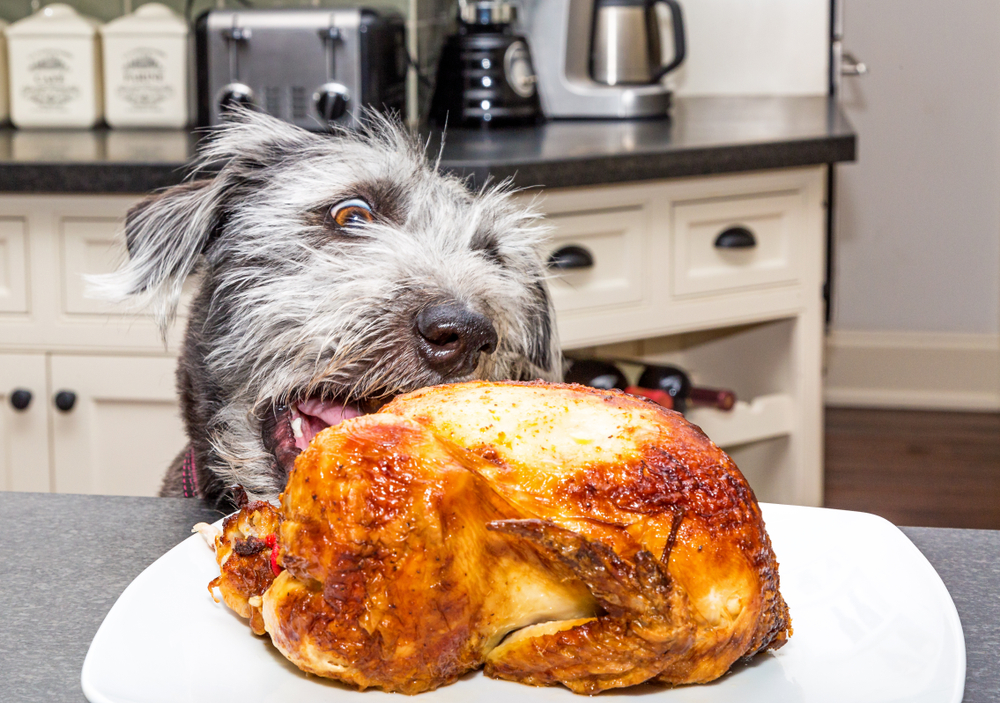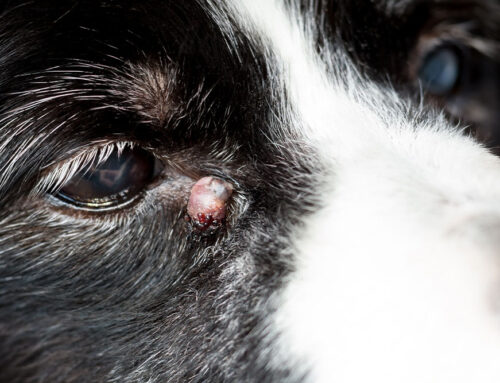As the holidays approach, veterinary hospitals are often faced with an influx of sick pets who ate too many scraps or got into the trash. Many of these pets have a simple stomach upset, but others develop a more serious condition called pancreatitis. This painful illness often requires hospitalization and can lead to life-threatening complications in severe cases.
Unfortunately, eating a fatty meal isn’t the only pancreatitis cause, and many pets are at risk. The Village Animal Hospital team answers common client questions regarding pancreatitis to ensure that pet owners know what to look for and when to seek veterinary care if their furry pal has the disease.
What does the pancreas do?
The pancreas has two main functions—endocrine (i.e., hormonal) and exocrine (i.e., digestive). The endocrine cells secrete hormones that regulate blood glucose, while the exocrine cells secrete digestive enzymes or “pancreatic juice.” Diabetes is a failure in the endocrine pancreas portion, while exocrine pancreatic insufficiency—a problem with digestion and food absorption—is a failure in the exocrine portion.
What is pancreatitis?
Pancreatitis is inflammation in the pancreatic tissue that can be acute or chronic. Acute pancreatitis mostly impacts exocrine functions, but chronic disease can sometimes cause diabetes or other endocrine problems. Pancreatitis, which develops from a variety of underlying causes, triggers digestive enzymes to activate before they are released, damages pancreatic cells, and sets off an inflammatory chain reaction throughout the body. In severe cases, the chain reaction can lead to life-threatening complications, such as widespread blood clotting or organ failure.
What causes pancreatitis?
Pancreatitis causes vary widely and, in many cases, the exact underlying cause is never found. Acute pancreatitis can be sudden onset, while chronic pancreatitis has a vague onset and long-lasting signs. Around 10% of acute pancreatitis cases in dogs are caused by sudden or extreme dietary changes, such as eating trash or fatty food scraps during holiday meals. Most cats develop the chronic form and are not susceptible to problems from fatty foods. Other potential pancreatitis causes may include:
- Certain medications
- Anesthesia
- Trauma
- Infections
Are some pets at higher pancreatitis risk?
Individual pets can have diseases and other risk factors that increase their chances of developing pancreatitis. Pet owners whose pets have these risk factors should pay close attention to diet and avoid sudden changes or too many treats. They should also work with our veterinary team to treat the underlying disorders. Risk factors include:
- Liver disease
- Cushing’s syndrome
- High blood triglycerides
- Certain breeds, including miniature schnauzer, Yorkshire terrier, cocker spaniel, dachshund, poodle, and sled dog breeds
How do veterinarians diagnose pancreatitis?
Pancreatitis signs typically include vomiting, abdominal pain, poor appetite, lethargy, fever, and diarrhea. They can mimic many other gastrointestinal (GI) illnesses, so testing is often performed to determine the most likely underlying cause. After a thorough examination, the following tests can provide more information and confirm a pancreatitis diagnosis:
- General blood and urine screening
- Pancreatic-specific lipase blood testing (e.g., snap, or spec cPL, or fPL)
- X-rays
- Abdominal ultrasound
- Pancreatic biopsy
How do veterinarians treat pancreatitis?
Most pets with acute pancreatitis require hospitalization to recover completely, but those with chronic disease can often be managed successfully at home. Initial stabilization requires intravenous fluids, medications to reduce inflammation and pain, anti-nausea and appetite stimulant medications, and a low-fat diet.
The veterinary nursing staff will work to ensure that following their diagnosis, your pet starts eating as soon as possible, because that has been shown to speed recovery. If complications develop, specific treatments can counteract their effects. Once pets are stabilized, or if they have the chronic disease form, the veterinary team will address underlying risk factors or causes to prevent disease recurrence or worsening.
What are my pet’s chances of recovery from pancreatitis?

Your pet’s chances of recovery are dependent on the severity of pancreas inflammation, and whether complications develop. The outcome is often poor if pets develop clotting problems or organ failure, which are difficult to reverse. Most pets with chronic or mild to moderate cases will recover with supportive, intensive care, and a long-term management plan.
Preventing pancreatitis is not always possible, but you can reduce risk by scheduling routine wellness examinations and screening tests with the Village Animal Hospital team. Early detection and treatment and proactive nutritional management of diseases associated with pancreatitis risks can reduce disease incidence or severity. Call us to schedule your four-legged friend’s next wellness visit or for a thorough evaluation and treatment if you notice potential pancreatitis signs.








Leave A Comment